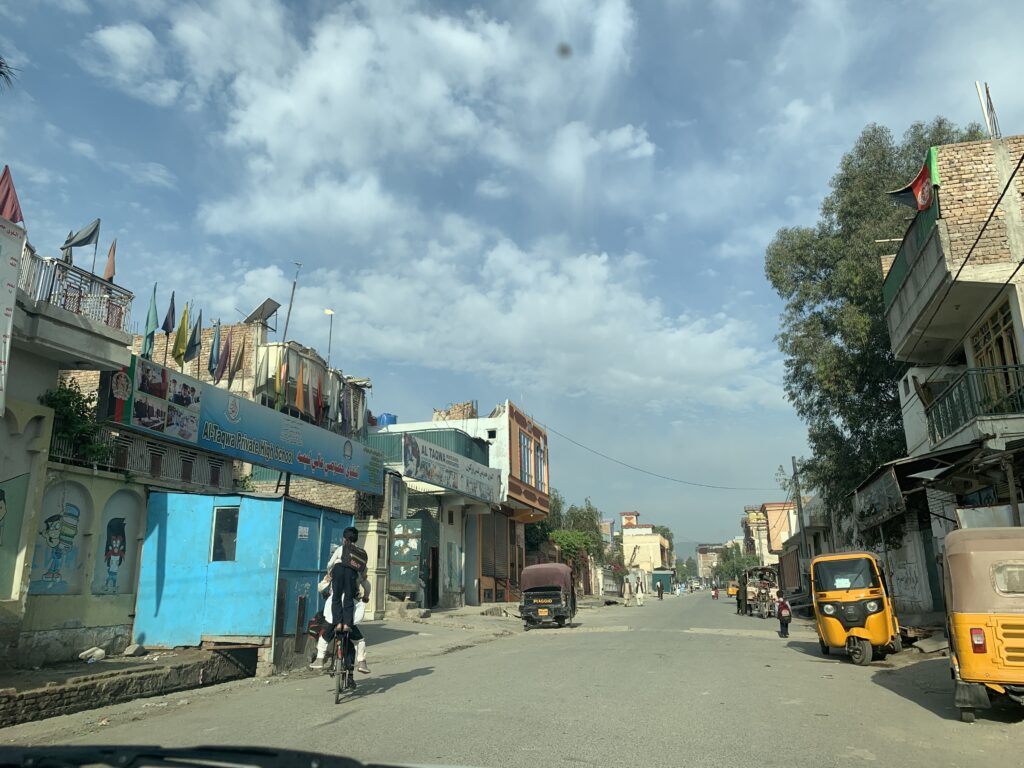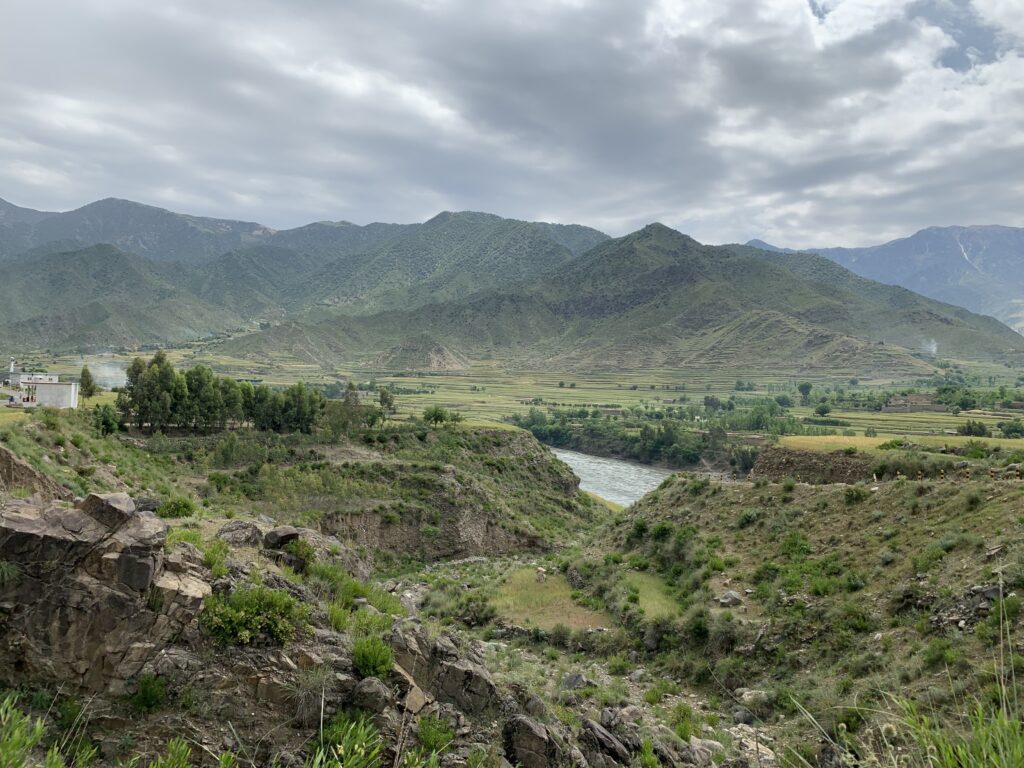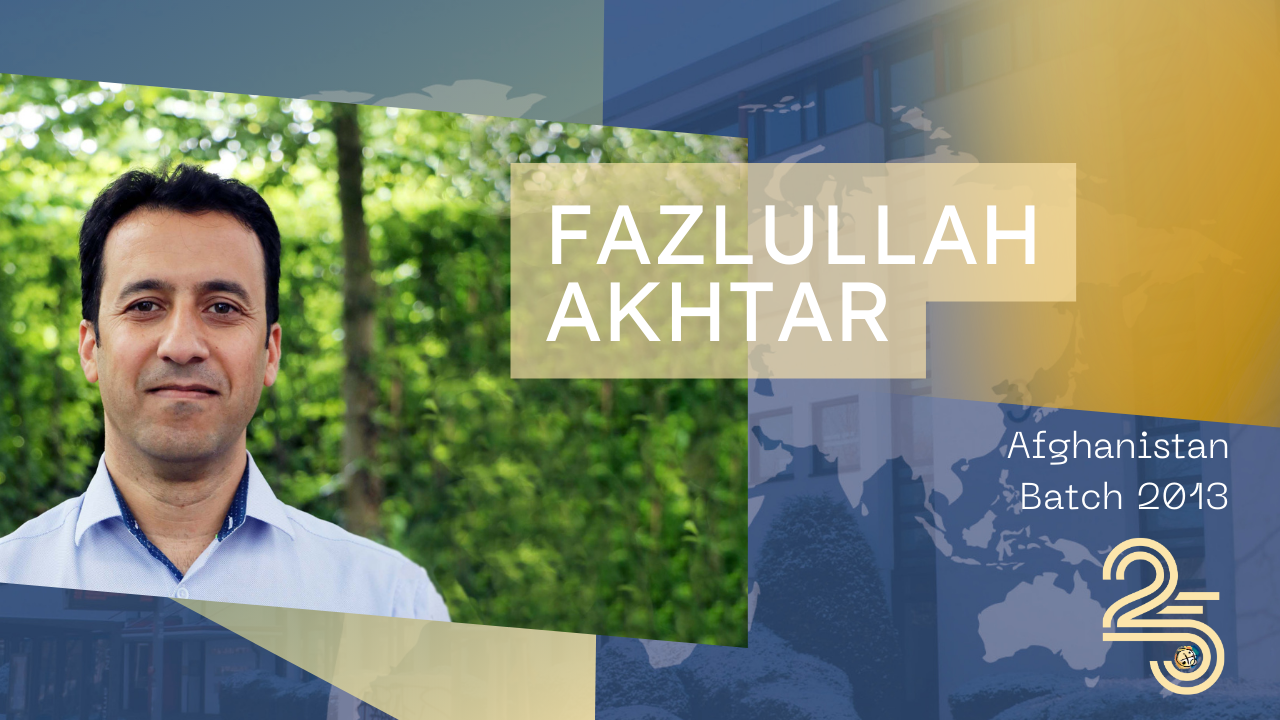“I was the first Afghan doctoral graduate at ZEF”.
Prior to his PhD research on water issues in Afghanistan, Fazlullah worked for international agencies such as UN. After graduation (2017) he continued his international career before returning to ZEF as a post-doctoral researcher.
Fact sheet
Fazlullah Akhtar comes from Afghanistan
PhD at ZEF: 2013-2017
PhD topic: Water Availability and Demand Analysis in the Kabul River Basin, Afghanistan (Faculty of Agriculture, University of Bonn, 2017)
PhD funding agency: German Academic Exchange Service (DAAD)
Supervisor: Professor Janos Bogardi
Current position: Senior Researcher at ZEF
Q& A with Fazl
What was your motivation for conducting your doctoral research at ZEF?
My motivation for starting a PhD at ZEF was based on the reputation and expertise available at ZEF. After I obtained my Bachelor’s degree from the University of Agriculture Faisalabad, Pakistan, my very first job was with the Welthungerhilfe (WHH) in the Kunduz Province of Afghanistan. It was in a project which was jointly managed by WHH and ZEF, that’s where I got to know ZEF. I realized that utilizing ZEF’s intellectual resources and networks could pay off for my future research and studies. Furthermore, the mentorship model provided by ZEF and the interdisciplinary work environment were quite appealing to me. It offered me the opportunity to explore issues from multiple perspectives. Last but not least, ZEF’s focus areas were very much aligned with my own research interests.
How has the topic of your doctoral research evolved in your opinion?
The evolution of my doctoral research topic has been influenced by various factors. First: Agriculture is the biggest employment sector and main source of livelihood for millions of people in Afghanistan. Second: Water resources are at risk due to the growing intersectoral competition in the country. Third: The impacts of climate change have been disastrous for Afghanistan. The water resources are at risk due to decreasing snow cover, erratic rainfalls and a shift in the weather pattern over the past years.
So climate change entails that the risks of increased flooding and droughts have become more pronounced and have significant implications on the country’s natural resources and, consequently, its economy. However, since 2001, international aid has not been focused on research on water resources. Therefore, I wanted to contribute to the knowledge pool on water resources as a bench mark to be hopefully utilized for water resource management and investment initiatives in Afghanistan.
How has your doctoral education at ZEF impacted your career?
My doctoral education has had a profound impact on my personal and professional life. I have been engaged in various networks, specifically research, donor and diplomatic communities, who have been working on water resources, climate change and water management with reference to Afghanistan and neighboring countries. I have also been able to present the case of Afghanistan in many national and international scientific forums. The understanding that I have thus gained has contributed a lot to advancing my career. Based on my attained skills, I have been able to work with public ministries in Afghanistan including the office of the President of the Islamic Republic of Afghanistan. I have also worked as a consultant with the UN’s Food and Agricultural Organization FAO, the German International Cooperation agency GIZ, the international NGO OXFAM, etc.
What are you most proud of with in terms of what you have achieved career-wise so far?
I take great pride in the collaborations and partnerships I have developed throughout my career. These experiences have not only enriched my perspectives but have also led to more effective and sustainable solutions. Additionally, I am committed to continuous learning and professional development, whether through pursuing further education, attending workshops and conferences, or embracing new challenges. Ultimately, I am most proud of the combination of my contributions (though very limited) to developing the water resources sector of Afghanistan. These achievements serve as a driving force, motivating me to strive for excellence in all aspects of my career.
What is your best memory of ZEF?
One memory stands out vividly – the moment I became the very first Afghan graduate at ZEF. It was a deeply moving experience, filled with a sense of pride and accomplishment. On the day of my PhD defense, as I awaited the announcement of the successful graduation, I felt a surge of emotions. Hearing those words of my graduation, backed by the applause and congratulations from my peers and mentors, echoed in my ears endlessly.
ZEF and its Doctoral Program turn 25 this year. What are your wishes and suggestions for their future?
My wishes for ZEF and its Doctoral Program on their 25th anniversary are: Continued success in fostering interdisciplinary research and nurturing the next generation of global leaders in sustainable development.


Photos: Scenes from Afghanistan (c) Fazlullah Akhtar



Leave a Reply